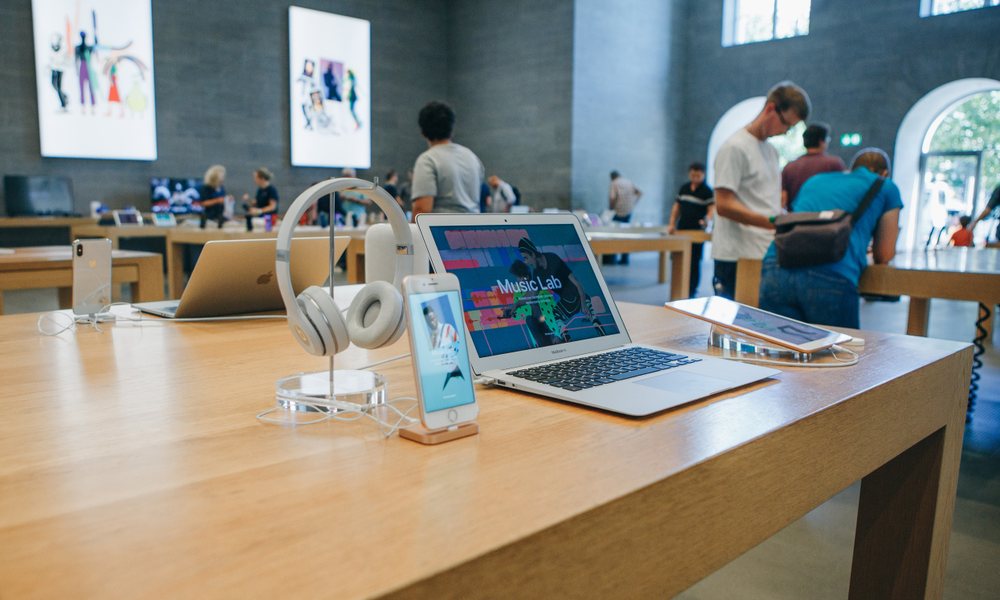Apple to Resume Selling Banned iPhones in Germany by Using Qualcomm Chips
 Credit: franz12 / Shutterstock
Credit: franz12 / Shutterstock
Toggle Dark Mode
Apple is preparing to resume selling its older iPhone models in Germany following a ban of their sale late last year by a German court that found they were infringing on a Qualcomm patent.
Back in December, Qualcomm triumphed in one of the many battles in its ongoing war Apple when a court in Munich found that the iPhone 7 and iPhone 8 models, which used Intel modems, infringed on a specific Qualcomm patent related to reducing power consumption when sending or receiving wireless signals. Following that ruling, Apple agreed to remove all iPhone 7 and iPhone 8 models from its 15 retail stores in Germany, although for whatever reason the company was able to continue distributing those models via carriers and resellers in that country.
While Apple indicated at the time that it would appeal the ruling, under German law a ban such as this remains in effect while an appeal is underway. As a result, it appears that Apple has decided that it’s worth taking a more creative approach to get around the problem by manufacturing specific non-infringing versions of the impacted iPhone models for sale in Germany — iPhones that use modem chips made only by Qualcomm.
To ensure all iPhone models can again be available to customers in Germany, we have no choice but to stop using Intel chips and ship our phones with Qualcomm chips in Germany.
Apple, in a statement to The Wall Street Journal
In a statement to Reuters and The Wall Street Journal, Apple said it had “no choice” but to stop using Intel chips in its German iPhones in order to comply with the patent infringement ruling. However, it’s noteworthy that it wasn’t actually the Intel chips that were responsible for the patent violations, but actually a chip from another Apple supplier, Qorvo, that accompanies the Intel modem chip in those iPhone models. Presumably, Qualcomm’s chips provide the combined functionality of both the Intel and Qorvo chips, eliminating the need for the Qorvo chip to be used alongside a Qualcomm modem chip.
Apple and Qualcomm have been at odds for over two years now, with the iPhone maker accusing Qualcomm of using its patent licensing to strong-arm companies into using its modem chips to create a monopoly, and Qualcomm accusing Apple of infringing its patents and leaking its trade secrets to competitors such as Intel. As a result of the ongoing war, Apple has gradually been phasing in the use of Intel modem chips to its iPhones since 2016, finally dropping Qualcomm’s chips entirely in last year’s iPhone XS and iPhone XR models. Despite their use of Intel modem chips, however, the new iPhone X series models do not incorporate the infringing technology.
Qualcomm is attempting to use injunctions against our products to try to get Apple to succumb to their extortionist demands.
Apple, in a statement to Reuters
Apple has been under attack from Qualcomm on several fronts in recent months, with a Chinese court also granting Qualcomm a similar import ban in December on all models from the iPhone 6s to the original iPhone X, although the iPhone XS and XR models also escaped the ban in that country. In the Chinese case, however, Apple believed it was able to bypass the iPhone ban by pushing out a software update, noting that Qualcomm’s patents only applied to devices running iOS 11, while all new iPhones have iOS 12 installed. Unlike the ban in Germany, the Qualcomm patents that Apple was determined to have infringed in China related to touchscreen interactions for adjusting photos and navigating apps, rather than wireless technology.
Qualcomm disagreed with Apple’s interpretation of the Chinese court order, however, accusing Apple of disregarding the order and continuing to fight for Apple’s iPhones to be banned in China, while in the meantime Apple has appealed the original injunctions anyway on a matter of principle.
Ultimately, though, Apple’s decision to switch back to Qualcomm chips in its iPhone 7 and iPhone 8 models may be a Pyrrhic victory at best; while it should eliminate any contention about the ban in that country, Qualcomm’s ability to bring Apple back into at least some reliance on its chips is more of a win for the chip maker, and definitely feels like a capitulation by Apple.






